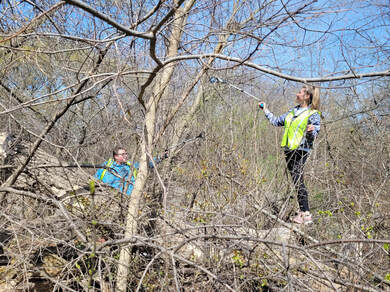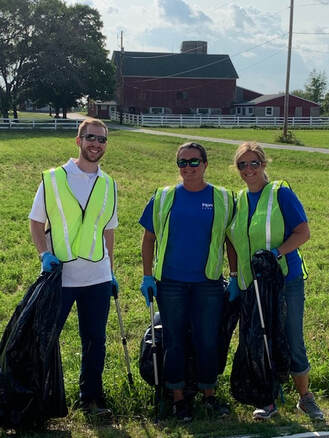|
Source: Pexels COP27, or the 27th United Nations Climate Change Conference, was this year’s annual event in which global experts and scientists, along with more than 90 heads of state and representatives from 190 countries, gathered to discuss important and urgent topics regarding climate change. This edition of the event was held in Sharm el-Sheikh, Egypt. A key focus of COP27 was an emphasis on implementation and action as a way for humans to adapt to the impacts of climate change, given the gradual rise in droughts, storms, and floods globally. In 2022, Wisconsin Governor Tony Evers directed the state's Department of Administration to establish the Office of Environmental Justice to develop a framework and strategy for environmental justice work in communities where pollution, industry shifts, and extreme weather are most prominent. COP27 also made headlines for releasing a warning of "climate chaos." Today, we'll go over COP27's climate chaos warning and its implications for the state of Wisconsin. What were the climate chaos warnings? The provisional State of the Global Climate Report 2022 produced by the UN's World Meteorological Organization was described as "a chronicle of climate chaos," according to UN Secretary-General António Guterres. True to its ominous description, the report details how rising global temperatures will make 2022 the fifth or sixth hottest year on record. Man-made greenhouse gas emissions are also predicted to rise after record highs in 2021 as well. Another record-breaker comes from sea levels growing at approximately 10% of the sea-level rise recorded since the first satellite measurements in 1993. Meanwhile, Wisconsin has seen heavier and more frequent rains in recent years, resulting in floods, soil erosion, and changes to the coastline — affecting sewage and wastewater treatment. Moreover, these poor conditions also affect individuals intensely, triggering chronic illnesses and cardiovascular diseases, particularly in vulnerable populations. How is the UN planning to address climate change at COP27? The UN has long planned to find solutions against climate change, working with scientists, global experts, and world leaders to identify proper action. This is what the annual Conference of the Parties is for — starting with the first international treaty in 1992. This led to more global platforms being created to deal with climate change. Maryville University outlined how the UN's Global Humanitarian Overview began in December 2019, identifying climate change as one of the several emerging risks. Rising temperatures are a threat to people's health, as well as water and food supplies, leading to humanitarian crises. For that reason, the UN has long advocated for climate action that can halve greenhouse gas emissions by 2030. One of their Sustainable Development Goals, precisely #12, focuses its targets on the environmentally sound management of all waste through prevention, reduction, recycling, and reuse, specifically to reduce greenhouse gas emissions. So what else can we do to support the UN's efforts? Since 1996, WasteCap has been helping businesses transform waste into resources, hitting a 72.2% national waste diversion rate. This has saved our clients more than $36 million, helping create full-time jobs and boosting cost savings of reuse and recycling. Organizations should look into better waste management, not only for the benefits they can reap but also do their part in the fight against climate change. To prevent the climate chaos from worsening, we must do what we can while making our voices — and the experts and scientists' — heard by those in power to make significant changes and policies. From saving water to using energy-efficient appliances and even rethinking the impact of travel by planes, trains, and automobiles, making small but necessary changes in our daily life can help. The classic "reduce, reuse, and recycle" campaign similarly comes to mind. Getting a better handle on waste management can also help curb the speed of climate change. Striving for a waste-free environment doesn't just reduce waste; it also cuts down your carbon footprint. When you recycle waste, the energy you generate can further reduce greenhouse gas emissions. Specially written for WasteCap.org
By: Raine Joselyn
7 Comments
 In honor of Zero Waste Month last month, we’re thrilled to highlight the zero waste achievements of a wonderful WasteCap Member company and valued partner: Inpro Corporation. Inpro is an industry-leading architectural product manufacturer based out of Muskego, Wisconsin. As a company, quality and environmental stewardship are at their core.  They aimed to become net zero compliant by 2025. Thanks to their consistent efforts, they’ve reached new heights this year, already achieving this goal three years ahead of schedule. “Waste audits were key to understanding our waste stream and the content of materials being sent to landfills,” say Jess Jenkins, Inpro’s Environmental and Technical Project Specialist, and Mark Alan, Inpro’s Senior Vice President of Product Management and Development. “Performing the audits allowed us to determine benchmarks and tracking methods for a variety of waste materials which in turn provided a method of prioritizing the changes we needed to make.” Check out more of Mark and Jess’s insights below on the zero waste process, the many benefits of waste reduction for businesses and their communities, and what’s next for sustainability at Inpro. What changes did you implement this year to reach zero waste? Our team had been solely focused on finding secondary uses for our production scrap along with separating recyclables from our waste stream, which we found to be challenging. We were making some progress, but the pace was slow. Once we reached out to learn how other local companies are achieving success toward zero waste to landfill, we widened our focus to include production yields and determine methods of reducing our production scrap. By applying six sigma methods, we found several opportunities to lower our material scrap and take credit for diverting it away from landfills.  Why should companies be working to reduce waste? The obvious answer is that it’s the right thing to do for our environment, but the extent of benefits is far more reaching. We’ve improved production methods by increasing our yield and reducing our raw material consumption, which reduced our overall cost. Another benefit was the level of employee engagement. Our employees WANT to be involved and contribute to waste diversion. Inpro has established an Environmental Management Team to help further its goals. How are you working to sustain zero waste operations, and what’s next for 2023? Achieving zero waste to landfill is not a one-and-done exercise. The EMS team has established tracking methods and monthly reporting which allows our company to take action and remain current with the goal. Additional initiatives have also been identified and prioritized as we continue our efforts. Now that we’ve reached a compliant level, we will pursue the GBCI TRUE certification. In addition to this major milestone, Inpro is proud to celebrate their commitment to sustainability in business through many other accomplishments and initiatives.
|
WasteCap News
Stay up-to-date on the latest waste reduction practices, innovations, tips & tricks on recycling, member spotlights, and industry news. Archives
March 2024
Categories
All
|
|
SUSCRIBE TO WASTECAP NEWS
|
STAY CONNECTED
|
© Wastecap Resource Solutions Inc. All rights reserved.



 RSS Feed
RSS Feed
